Home> Company News> Shopping For Hydraulic Pressure Compensator Valve? Our Hydraulic Pressure Compensator Valve Reviews
- AddressTianqiao, Beiyuan District, Jinan,Shandong
- Worktime9:00-18:00(Beijing time)
- Phone(Working Time)0531-8299 9953
Shopping For Hydraulic Pressure Compensator Valve? Our Hydraulic Pressure Compensator Valve Reviews
NOVEMBER 02, 2022Hydraulic pressure compensator valves are critical components of hydraulic systems that help regulate the pressure and maintain the desired fluid flow rate. In this guide, we will discuss the importance of hydraulic pressure compensator valves and provide a brief overview of their features and functions.
Hydraulic systems are widely used in various applications such as construction, manufacturing, and material handling. The performance of hydraulic systems largely depends on the accurate and precise regulation of the fluid pressure. The hydraulic pressure compensator valve plays a crucial role in maintaining the pressure and ensuring safe and efficient operation of hydraulic systems.
The hydraulic pressure compensator valve is designed to regulate the pressure and maintain a constant flow rate of the fluid in the hydraulic system. It is essentially a control valve that adjusts the flow rate based on the pressure differential between the upstream and downstream sides of the valve.
The hydraulic pressure compensator valve is typically installed in the hydraulic system's main line or in a branch line to control the flow rate of the fluid. When the pressure on the downstream side of the valve drops below the set point, the valve opens to allow more fluid to flow. Conversely, when the pressure on the downstream side exceeds the set point, the valve closes to reduce the flow rate and maintain a constant pressure.
The hydraulic pressure compensator valve is available in various types, such as fixed, variable, and load-sensing valves. Fixed pressure compensator valves maintain a constant pressure and flow rate regardless of the load. Variable pressure compensator valves adjust the pressure and flow rate based on the load, while load-sensing valves adjust the pressure and flow rate based on the load and the speed of the actuator.
In summary, the hydraulic pressure compensator valve is an important component of hydraulic systems that helps regulate the fluid pressure and maintain a constant flow rate. Selecting the right type of valve and installing it correctly can ensure the safe and efficient operation of hydraulic systems.
Types of Hydraulic Pressure Compensator Valves
Hydraulic pressure compensator valves are essential components of hydraulic systems that help regulate the pressure of hydraulic fluid to maintain safe and efficient operation. There are different types of hydraulic pressure compensator valves available, each with its unique function and advantages. The three main types of hydraulic pressure compensator valves are fixed, variable, and load-sensing valves.
Fixed hydraulic pressure compensator valves maintain a constant pressure in the hydraulic system regardless of the flow rate. They are ideal for applications that require a fixed pressure such as clamping and lifting.
Variable hydraulic pressure compensator valves adjust the pressure according to the flow rate in the hydraulic system. They are ideal for applications where the flow rate varies, such as drilling and excavating.
Load-sensing hydraulic pressure compensator valves regulate the pressure based on the load on the hydraulic system. They are ideal for applications that require high precision and control, such as material handling and steering systems.
Each type of hydraulic pressure compensator valve has its advantages and disadvantages. Fixed valves are simple and reliable, but they cannot adjust to changes in the flow rate. Variable valves provide more precise pressure control, but they are more complex and expensive. Load-sensing valves offer the highest level of precision and control, but they are the most expensive and require more maintenance.
Choosing the right type of hydraulic pressure compensator valve depends on the specific requirements of the hydraulic system. Factors such as flow rate, pressure range, valve size, and compatibility with other components in the system should be considered when selecting a valve.
Factors to Consider When Buying Hydraulic Pressure Compensator Valve
When it comes to buying a hydraulic pressure compensator valve, there are several factors to consider. The first and foremost factor is the flow rate of the hydraulic system. The valve should be selected according to the flow rate of the system to ensure that it can handle the required flow rate.
The pressure range of the system is another crucial factor to consider. The valve should be able to handle the maximum pressure of the hydraulic system. If the pressure range of the valve is not suitable for the system, it may cause damage to the valve or other components of the system.
Valve size is also an important factor to consider. The valve should be sized according to the pipe diameter of the hydraulic system. If the valve is too small, it may restrict the flow rate and cause pressure drops. On the other hand, if the valve is too large, it may not be able to control the pressure effectively.
Compatibility is another factor to consider when buying a hydraulic pressure compensator valve. The valve should be compatible with other components of the hydraulic system, such as pumps, motors, and cylinders. Incompatible components can lead to inefficiencies in the system and potentially cause damage to the valve or other components.
It is also important to consider the type of hydraulic fluid used in the system. The valve should be selected according to the type of fluid to ensure that it can handle the specific fluid and its properties, such as viscosity and temperature.
Finally, the environment in which the hydraulic system operates should also be considered. Factors such as temperature, humidity, and exposure to corrosive substances can affect the performance and durability of the valve. Selecting a valve that is suitable for the specific environment can help ensure optimal performance and longevity of the valve.
Top Hydraulic Pressure Compensator Valve Brands
When it comes to hydraulic pressure compensator valves, there are several brands available in the market, each offering a range of options for different hydraulic systems. Here are some of the top brands that manufacture hydraulic pressure compensator valves:
-
Parker: Parker is a well-known brand in the hydraulic industry, offering a range of hydraulic pressure compensator valves, including fixed and variable displacement valves. Their valves are known for their precise control, high efficiency, and durability, making them suitable for various hydraulic applications.
-
Bosch Rexroth: Bosch Rexroth is another well-known brand in the hydraulic industry, offering a range of hydraulic pressure compensator valves, including fixed and variable displacement valves. Their valves are known for their high accuracy, low noise, and energy efficiency, making them suitable for various hydraulic applications.
-
Eaton: Eaton is a leading brand in the hydraulic industry, offering a range of hydraulic pressure compensator valves, including load-sensing valves. Their valves are known for their durability, high performance, and energy efficiency, making them suitable for various hydraulic applications.
-
Vickers: Vickers, a subsidiary of Eaton, is also a leading brand in the hydraulic industry, offering a range of hydraulic pressure compensator valves, including load-sensing valves. Their valves are known for their precision, reliability, and efficiency, making them suitable for various hydraulic applications.
Each of these brands offers unique features and benefits in their hydraulic pressure compensator valves. It is important to carefully consider the requirements of the hydraulic system and choose a brand and valve that best meets those needs.
Hydraulic Pressure Compensator Valve Reviews
There are several hydraulic pressure compensator valves available in the market. Here are some detailed reviews of popular valves:
- Parker Hydraulic Pressure Compensator Valve
The Parker hydraulic pressure compensator valve is designed to maintain a constant pressure in hydraulic systems. It is available in fixed and variable types and offers a range of pressure ratings. The valve is made of high-quality materials, ensuring durability and reliability. It has precise control and operation, providing enhanced safety and performance. The valve is easy to install and maintain, and Parker offers excellent technical support and assistance.
- Bosch Rexroth Hydraulic Pressure Compensator Valve
The Bosch Rexroth hydraulic pressure compensator valve is designed to deliver precise control and operation of hydraulic systems. It is available in fixed and variable types and offers a range of pressure ratings. The valve is made of high-quality materials, ensuring durability and reliability. It has enhanced safety features, preventing system overpressure and component damage. The valve is easy to install and maintain, and Bosch Rexroth offers excellent technical support and assistance.
- Eaton Hydraulic Pressure Compensator Valve
The Eaton hydraulic pressure compensator valve is designed to maintain a constant pressure in hydraulic systems. It is available in fixed and variable types and offers a range of pressure ratings. The valve is made of high-quality materials, ensuring durability and reliability. It has precise control and operation, providing enhanced safety and performance. The valve is easy to install and maintain, and Eaton offers excellent technical support and assistance.
- Vickers Hydraulic Pressure Compensator Valve
The Vickers hydraulic pressure compensator valve is designed to deliver precise control and operation of hydraulic systems. It is available in fixed and variable types and offers a range of pressure ratings. The valve is made of high-quality materials, ensuring durability and reliability. It has enhanced safety features, preventing system overpressure and component damage. The valve is easy to install and maintain, and Vickers offers excellent technical support and assistance.
When choosing a hydraulic pressure compensator valve, it is important to consider factors such as the system pressure and flow rate requirements, the type of valve needed, and the compatibility with other components in the system. Additionally, the performance, durability, and cost of different valves should be compared to ensure the best choice for specific applications.
Installation and Maintenance of Hydraulic Pressure Compensator Valve
Hydraulic pressure compensator valves are important components of hydraulic systems that help maintain a consistent pressure to ensure safe and efficient operation. Proper installation and maintenance of these valves are crucial to ensure their long-term durability and performance. In this section, we will discuss the steps for installing and maintaining hydraulic pressure compensator valves.
Installation:
Step 1: Determine the right valve size The size of the hydraulic pressure compensator valve should be determined based on the specific requirements of the hydraulic system. It is important to select a valve that is compatible with the flow rate and pressure range of the system.
Step 2: Prepare the valve and system for installation Before installation, the valve and system should be cleaned and inspected for any damage or defects. Any debris or foreign objects should be removed from the valve and system.
Step 3: Install the valve The hydraulic pressure compensator valve should be installed in a location that allows for easy access and maintenance. The valve should be secured tightly to prevent any leaks or damage.
Step 4: Connect the valve to the system The valve should be connected to the hydraulic system using appropriate fittings and hoses. It is important to ensure that the connections are tight and secure to prevent any leaks.
Step 5: Test the valve After installation, the valve should be tested to ensure its proper functioning. The hydraulic system should be operated under various loads to ensure that the valve is maintaining a consistent pressure.
Maintenance:
Regular maintenance of hydraulic pressure compensator valves is essential to ensure their proper functioning and prevent system failure. Here are some maintenance tips:
Tip 1: Monitor the pressure gauge The pressure gauge should be monitored regularly to ensure that the valve is maintaining a consistent pressure. Any sudden changes in pressure could indicate a problem with the valve or system.
Tip 2: Check for leaks Leaks can cause damage to the valve and system components. It is important to check for any leaks regularly and repair them immediately.
Tip 3: Inspect the valve The valve should be inspected regularly for any damage or defects. Any damaged or defective parts should be replaced immediately to ensure the proper functioning of the valve.
Tip 4: Replace the fluid The hydraulic fluid should be changed regularly to ensure its proper functioning and prevent any contamination or buildup.
Tip 5: Follow manufacturer's instructions It is important to follow the manufacturer's instructions for maintenance and servicing of the hydraulic pressure compensator valve to ensure its proper functioning and long-term durability.
By following these installation and maintenance steps, the hydraulic pressure compensator valve can provide optimal performance and help ensure the safe and efficient operation of the hydraulic system.
Conclusion
Hydraulic pressure compensator valves are essential components in hydraulic systems that help maintain the desired pressure and ensure safe and efficient operation. Choosing the right hydraulic pressure compensator valve for specific applications can be challenging due to the variety of options available in the market. In this guide, we have discussed the importance of hydraulic pressure compensator valve and provided an overview of the different types, factors to consider when buying, top brands, reviews, and installation and maintenance.
In conclusion, investing in the right hydraulic pressure compensator valve can ensure the durability, reliability, and safety of the hydraulic system. By understanding the different types of valves, considering the important factors when buying, and choosing a quality brand, machinery owners and operators can make informed decisions that lead to increased productivity, reduced downtime, and cost-effectiveness over the long run. Proper installation and maintenance of the valve are also crucial for optimal performance and preventing system failure. Overall, choosing the right hydraulic pressure compensator valve is a smart investment for any hydraulic system.


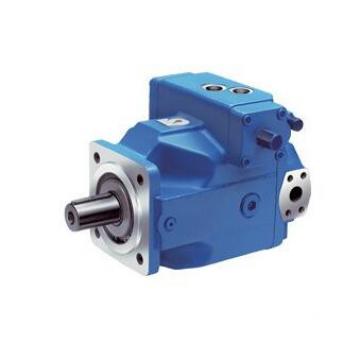 USA VICKERS Pump PVH131R13AF30B252000002001AB010A
USA VICKERS Pump PVH131R13AF30B252000002001AB010A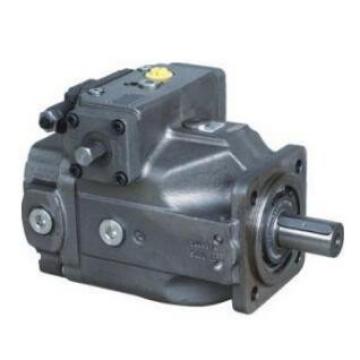 Parker Piston Pump 400481002108 PV140R1K1B4NWLZ+PGP517A0
Parker Piston Pump 400481002108 PV140R1K1B4NWLZ+PGP517A0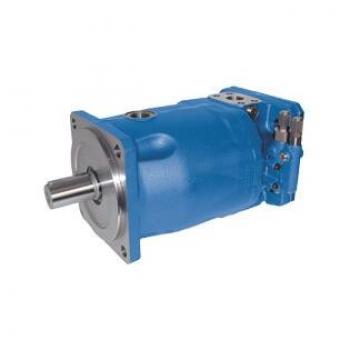 Parker Piston Pump 400481003286 PV180R1K1A4NYCD+PGP511A0
Parker Piston Pump 400481003286 PV180R1K1A4NYCD+PGP511A0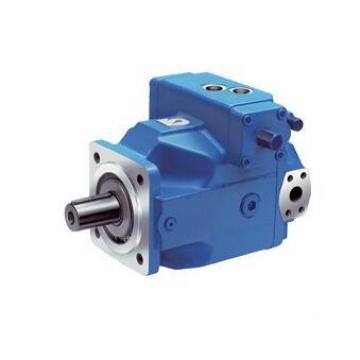 USA VICKERS Pump PVH057R02AA10B25200000100100010A
USA VICKERS Pump PVH057R02AA10B25200000100100010A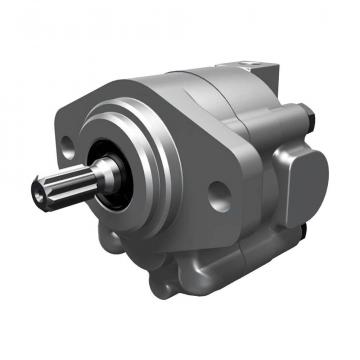 Parker Piston Pump 400481004166 PV270R9K1B4NYLZK0033+PVA
Parker Piston Pump 400481004166 PV270R9K1B4NYLZK0033+PVA